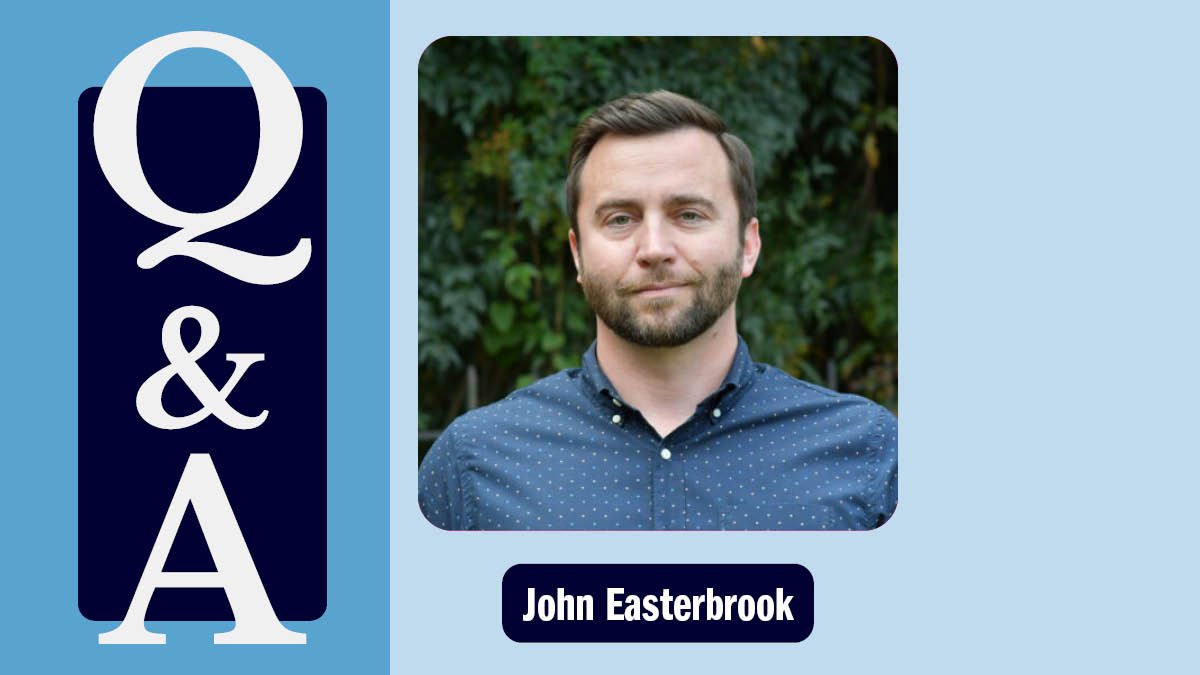Graduate Student Experience offers holistic support
The initiative aims to improve working conditions and well-being for graduate and professional students.

As the University celebrates its graduate and professional students this week, The Well asked John Easterbrook, The Graduate School’s executive director of strategic initiatives, about the Graduate Student Experience, an initiative to support them.
How did the GSE come about and why is it needed?
A number of graduate and professional students reached out to share their experiences with Beth Mayer-Davis after she took on the role as dean of The Graduate School. The GSE is in part a response to calls from those students to find ways to support graduate students in a more holistic way.
Research shows graduate and professional students are facing high levels of stress and anxiety. What can we do to support students that isn’t going to be a superficial quick fix but will get to the root of the issue? There are a lot of stressors we can remedy here on campus.
What are the main goals?
The goal is to develop long-term recommendations as well as short-term projects that can have an immediate benefit for students.
One of those would be being able to navigate existing support services more easily — that’s our new campus resource navigation website we will launch in the fall.
Another involves how the mentor-mentee relationship can impact the student’s time at Carolina. One recommendation we put forth to the provost was to develop a required mentorship training for faculty to ensure faculty are supported as mentors and students are in supportive, successful mentor-mentee relationships. Correspondingly, we’re working on implementing individual development plans and mentor-mentee compacts, both of which would be required for all graduate students in a doctoral program or a research-focused master’s program.
We also want to make sure we’re attentive to graduate and professional student working conditions. We know students are balancing many commitments in addition to their coursework and research. The Graduate School, for instance, recommends that doctoral students serve no more than 20 hours a week as a research assistant or teaching assistant. We’re also developing a new TA training that’ll be available to all students who serve as TAs.
The fourth project is an assessment of current mental health and well-being services, including Campus Health, UNC Health, CAPS and other campus- and community-based providers, to get a comprehensive understanding of the services available to students. One of our guiding principles is that graduate education can both provide academic rigor and support overall well-being.
What role do students play in the GSE?
We have 107 people across campus involved with the GSE, including 18 graduate students. We intentionally partnered with the Graduate and Professional Student Government to ensure the GSE is aligned with GPSG’s goals and students’ needs. The current president, Lauren Hawkinson, serves on our steering committee, as does the incoming president, Katie Heath, to ensure a smooth transition.
We have five working groups: two focused on TA-related issues and two focused on RA-related issues. Those are divided by areas of disciplinary expertise. We wanted to be as inclusive as possible because the conditions of graduate education look very different in, say, biology compared with music. Our fifth working group is focused on student life and wellness more broadly. Graduate and professional students serve on each of those working groups as well as our advisory board.
What’s been the feedback from students?
It’s been an overwhelmingly positive response. Students are eager to see the impact on their daily lives. In the fall, we’ll look for additional volunteers to join the initiative, and we very much encourage graduate students who are interested to reach out to me.







